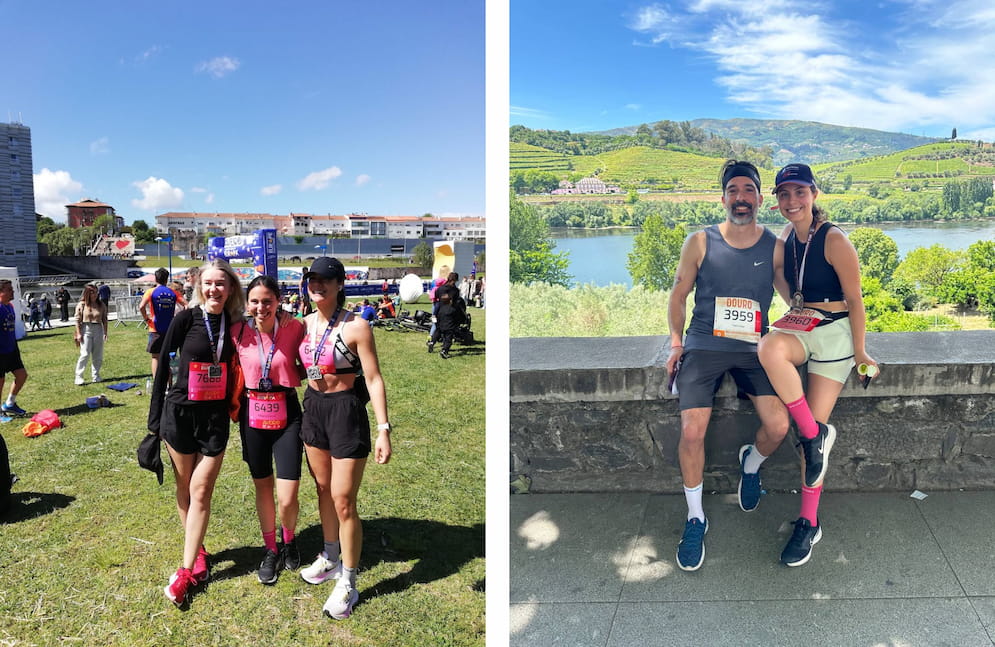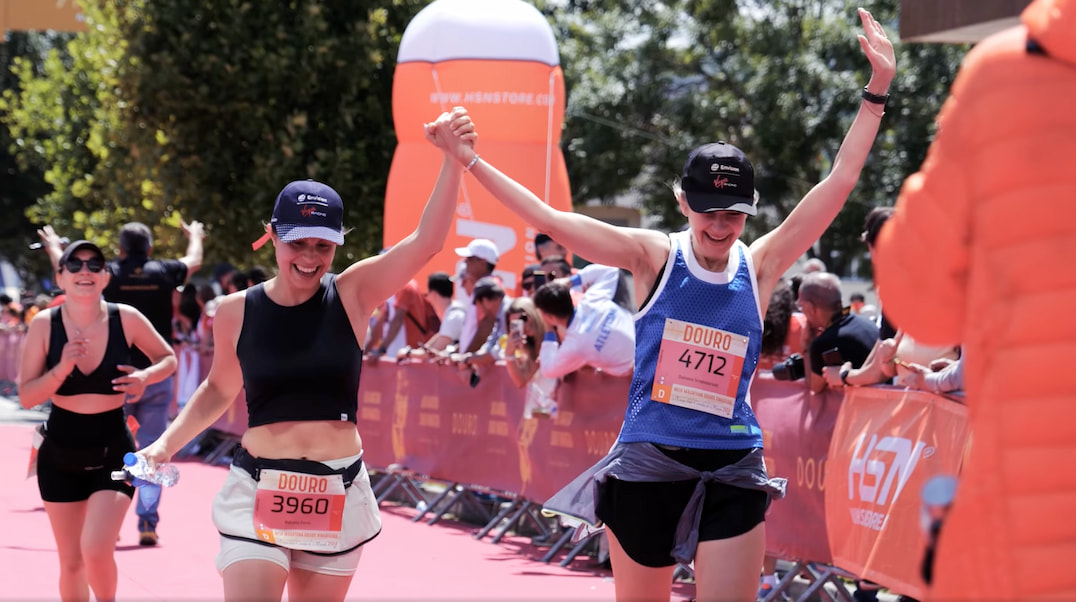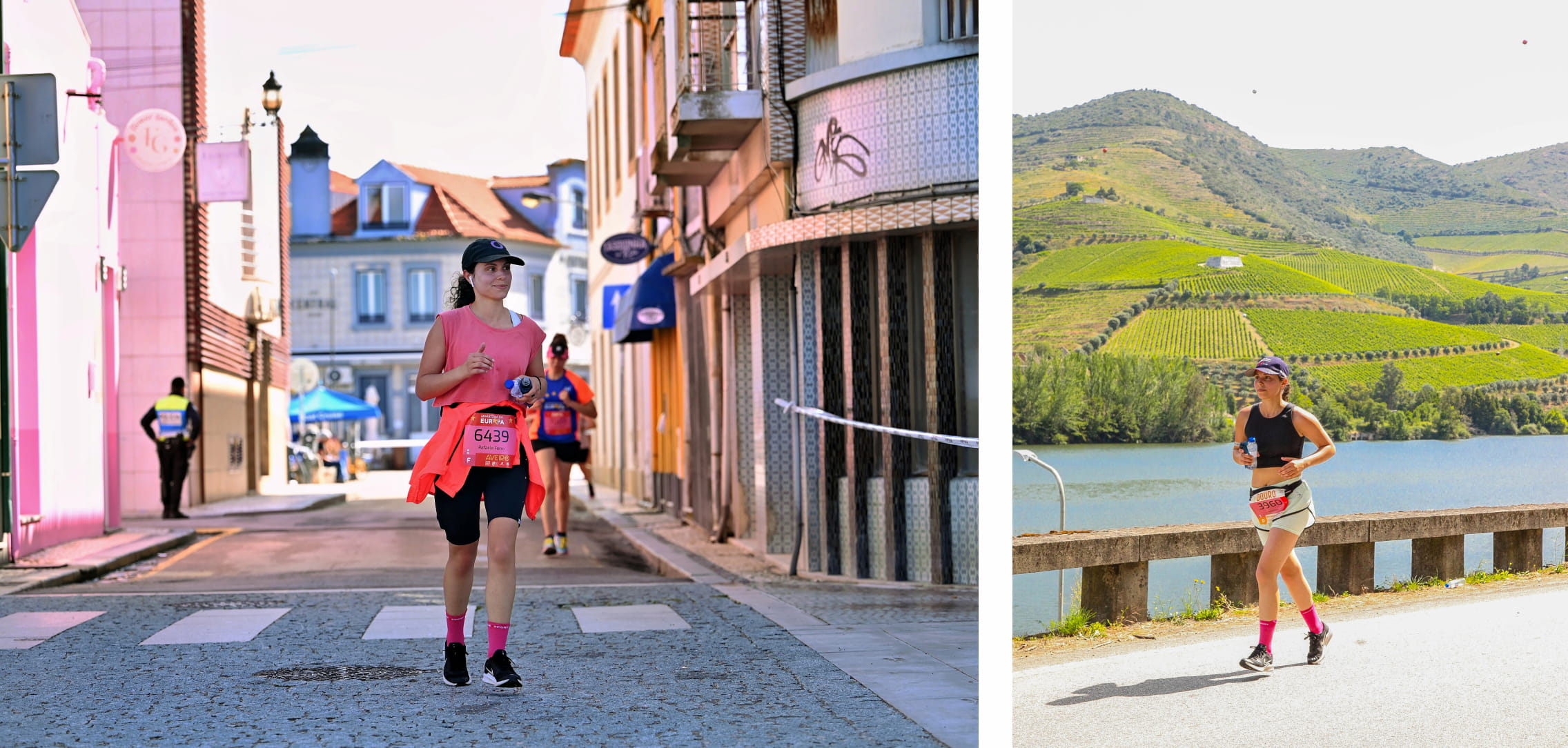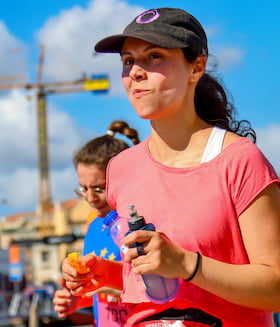Hello, my friends! It’s been a while, but I’m back with my 20-week training update. This time, I’m sharing details about my first running injury, completing my first half-marathon events, and answering a couple more questions from the Q&A – what has been my approach to nutrition and will I continue to run after the marathon?
My first running injury?
After more than 15 weeks of running in sneakers that are definitely not designed for running, I finally caved to the pressure and bought a pair of running shoes. Unfortunately, that’s when things went wrong.
I took them for a short 3km test drive and I experienced knee pain for the very first time. I wanted to give them the benefit of the doubt and think it was a coincidence, but after another run, the knee pain stuck with me for about a week. Of course, I visited Gerardo Studio once more. Thankfully, it was just an inflammation that went away without much drama.
Gerardo explained that the new shoes likely altered my running form, putting extra strain on muscles and tendons that I normally don’t recruit as much. Given that the marathon is approaching (*mild panic*), he reluctantly gave me permission to switch back to my old sneakers to avoid more complications, as there just isn’t enough time to experiment with different models. While I understand that proper running shoes could potentially improve my speed, I feel more at ease and comfortable in my old sneakers than any running shoes I’ve tried on so far.
To be clear, I’m not suggesting that running shoes are inherently bad—this is just my personal experience with one specific model. Everyone’s different, so find what works for you.
Now that we got that out of the way, on to the good stuff!
Running half-marathon events
In April, I participated in my first half-marathon event — Maratona da Europa, in Aveiro — and it was incredible! I grew up in Aveiro, and going back there with friends I made in Coimbra made the whole experience unforgettable. Plus, the weather was perfect, and the event was extremely well-organized. The atmosphere was electric, with tons of people cheering across the route, playing music, and holding signs that were quite creative.
Looking back, I’m almost sorry I didn’t start my training sooner so I could have run the marathon in this event. Then again, as I reached the finish line, I remember thinking to myself that no one could pay me enough to do that all over again on the spot! 😄

A couple of weeks later, we headed to the Douro Valley Half Marathon with another group of friends. I was still dealing with the knee inflammation which kicked in at around the 8km mark. I’m very grateful to my friend Dainora, who insisted on staying with me the entire way although she could have gone much faster (she's a badass!). Without her, I probably would have ended up walking a significant portion of the route. Did we cross the finish line holding hands, partying like we won the whole thing? Yes, we did.

Overall, I enjoyed the Aveiro half-marathon more. It was better organized, and despite the landscape in Douro being undeniably stunning, I prefer circular routes that don't repeat sections.
20-week update
Over the past five weeks, I've averaged 26.3km per week, including one rest week with no running. My highest mileage in a single week was 49.3km, with my longest run reaching 29km.
Compared to the initial weeks, I’ve noticed a significant improvement in post-run recovery — my legs still feel heavy after long runs, but I rarely get soreness in the days that follow.
Until the marathon, I'll be running 3 to 4 times a week and have reduced my strength training to once a week. The foot numbness came back in full strength, but it was because I bailed my mobility sessions for a few days. Thankfully, it seems to be back on track now. Lesson learned.

Q&A
Q: What is your nutrition/fuelling strategy?
I started taking snacks with me early on for any run that was over an hour. While the snacks weren’t strictly necessary for all those runs, I wanted to get used to eating while running, and figure out what I enjoy. Plus, they serve as a treat for my efforts! 😄 Cioga may or may not have started asking if I was planning to go for a run or a picnic.

My go-to snacks are salty lemonade (a mix of lime or lemon, maple syrup, and salt) and gummies. During races, I always head for the orange slice stand, but that’s not practical for training runs. I tried taking a banana once, but didn’t love that – so I’m sticking to lemonade and gummies.
I usually run late in the morning, so I always have breakfast beforehand. What I eat varies, but I never work out on an empty stomach, even for short runs. I’m a big fan of breakfast.
Another thing about food is that I've been eating more overall since I started this programme. Especially during the first few weeks, I felt hungry quite often because of the increased activity level, so I adjusted my meal portions. While before I used to eat less if I didn’t have a big appetite, I now always try to eat a decent meal because I know my body will need that energy. If a girl’s gotta run, a girl’s gotta eat.
As you can see, I’m not doing anything fancy or complex. However, if you have specific performance goals, it makes sense to be more thoughtful about this and even consider reaching out to a sports dietitian if you feel a bit lost.
Q: Will you continue to run after the marathon? And do you REALLY still don’t like running?
Only time will tell, but knowing myself, I don’t think I’ll continue running regularly. I might go for a run now and then, but I don’t see it becoming a significant part of my routine. One person has told me I should be more committed considering the time I already invested in this, but look: my commitment was to train for six months for a sport I loathed, with a specific goal in mind. I'm 100% fulfilling that commitment. If anything, this experience made me more confident and excited to try new things. But running so many hours per week means I can’t fit in other activities (and I’m not just talking about sports), so I’m already feeling ready to move on.
As for the second part of the question: twenty weeks ago, I dreaded running. Now, the feelings are more neutral. I may not have become super passionate about it, but there was a great outcome from this process — running no longer "scares" me, and I no longer believe that I'm just not cut out for it. For that, I think this was already worth it.
That’s all for today. The marathon is approaching fast, and with it the last of these posts. See you then!
PS: Did I forget to register and miss the deadline for the marathon I've been preparing for for the past 6 months? Of course I did.